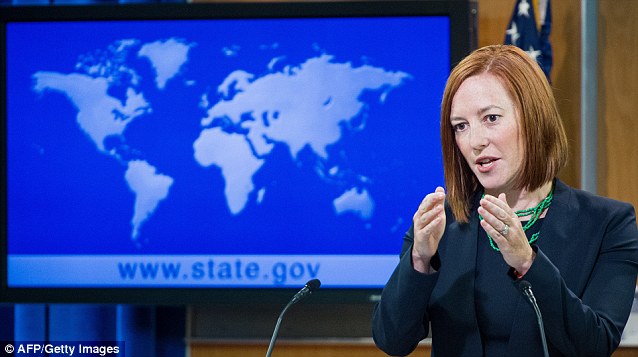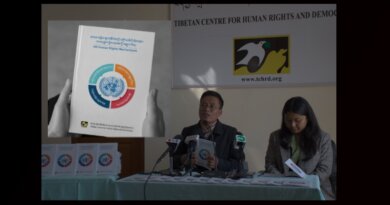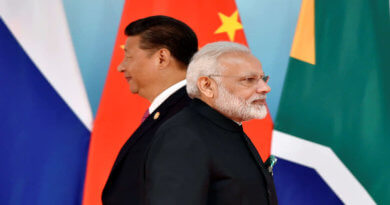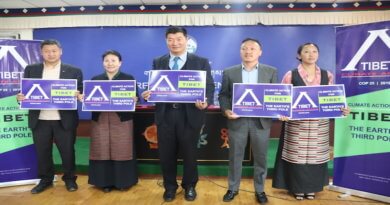Tibetans in Dharamsala celebrate 65th Tibetan Democracy day
By Tenzin Chokyi
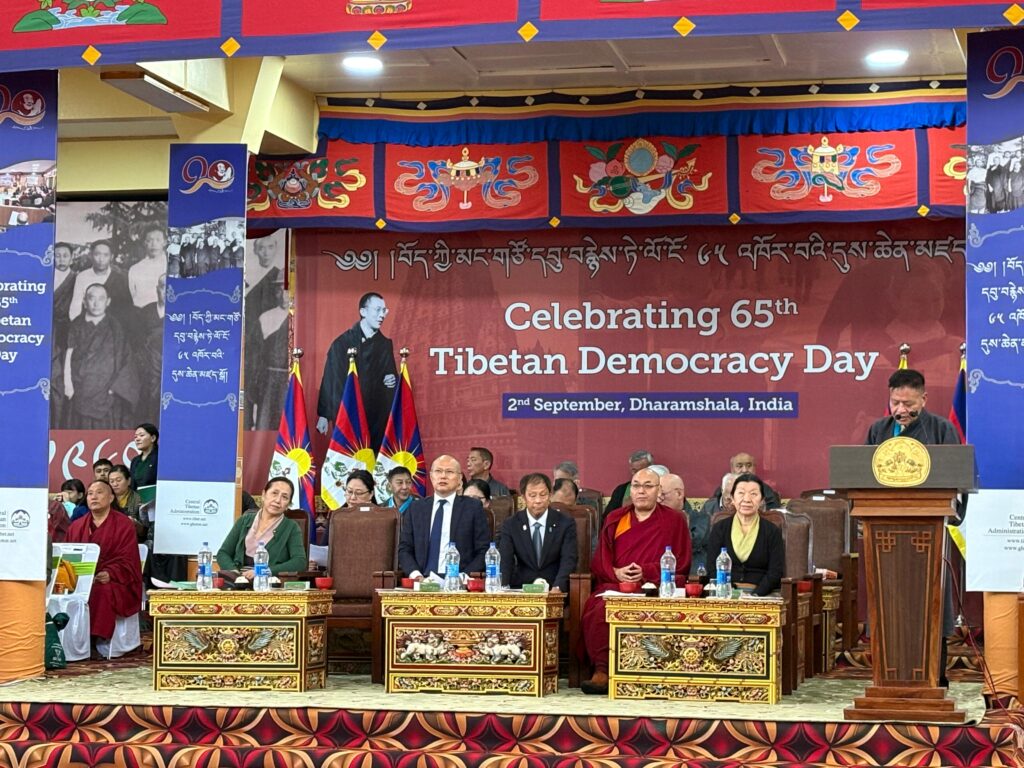
DHARAMSALA, 2 Sept: The Central Tibetan Administration(CTA) today marked the 65th anniversary of its democratic system, commemorating the swearing-in of the first Commission of Tibetan People’s Deputies on 2 September 1960, a milestone that laid the foundation for the Tibetan Parliament-in-Exile and replaced centuries-old theocratic governance in Tibet.
Christina Jansen, Chair of the Board, International Campaign for Tibet (ICT), described the occasion as an opportunity for Tibetans and everyone to cherish the Dalai Lama’s wisdom. “It is not only an auspicious occasion, it is also a reminder of the extraordinary vision that has guided your democracy, your democratic journey in exile,” she said.
“Democracy is not easy, it requires patience, courage and humility. Mistakes will be made that is part of the journey but His Holiness has given a framework that is both deeply Tibetan and universally human: a democracy rooted in compassion.”
Chief guests Alfred Kan-Ngam Arthur, an Indian MP from Manipur representing Outer Manipur, and Wada Yuichiro, a member of Japan’s House of Representatives and chair of the Japan Parliamentary Support Group for Tibet, expressed strong support for the Tibetan cause. Both praised the 14th Dalai Lama for his democratic vision.
While acknowledging his diplomatic constraints in commenting on China’s policies, the Indian MP from the INC (Indian National Congress) conveyed his human aspiration for a free Tibet, saying he hoped Tibetans could live a life of freedom, similar to that enjoyed under India’s democratic system.
“We all know, the world knows what China is about. As a Member of Parliament of India, I have diplomatic obligations and cannot speak much on such an important day for the Tibetan people. But as a human being and as a person who lives under a roof that is free. And India that allows each parliamentarian, each head of an executive or any citizen across the length and the breath of this nation to be free, to live free.”
Alfred Arthur expressed his belief that “every nation across the globe, whether in the developed West, the third world, or neighbouring countries, would all wish for a Tibet that would be free from all encumbrances and hostilities and would embrace and live” a life similar to the life he himself enjoys in India: free.
Japanese MP Yuichiro congratulated the Tibetans on the occasion of the 65th anniversary of Tibetan Democracy Day and reaffirmed Japan’s support for the Dalai Lama’s stance on his reincarnation and rejected Chinese interference in Tibetan religious matters.
Reading a message from Senator Eriko Yamatani, chairperson of the Japan Parliamentary Support Group for Tibet, MP Yuichiro added, “Tibetans have the right to live as the as Tibetans. Language and religion are the life of the people and a treasure of humanity.”
The MP conveyed the Japan Parliamentary Support Group for Tibet’s assurances “to continue to work for the peace justice and freedom for the Tibetan people.”
CTA President Penpa Tsering and Khenpo Sonam Tenphel, the Speaker of the Tibetan Parliament in Exile, read the Kashag’s and Parliament’s statements, respectively.
President Tsering, delivering the Kashag’s statement, highlighted the unprecedented democratic success among exiles across thirty countries, condemned China’s destruction of Tibetan Buddhism, and described democracy as an “indomitable force” in Tibet’s struggle and the “most precious gift” for future reunification.
Delivering the Parliaments’s statement, Khenpo Sonam Tenphel paid profound tribute to the Dalai Lama for assuming leadership at a young age during China’s invasion of Tibet and subsequently gifting the Tibetan people with a democratic system, lauding the 65th anniversary as a remarkable transformation from traditional governance to modern democracy.
As the Tibetan General Election 2026 approaches, Khenpo Sonam Tenphel, urged the Tibetan community to actively participate in the electoral process and to remain vigilant against divisive influences and uphold democratic values.
The official ceremony, organised by the CTA, commonly referred to as the Tibetan government in exile, took place at the courtyard of the Dalai Lama Temple in McLeod Ganj. Tibetan democracy, often described as a gift from the Dalai Lama to the Tibetan people, traditionally attracts limited public turnout, and this year was no exception.
On 2 September 1960, the first Commission of Tibetan People’s Deputies from religious and provincial constituencies took their oath before His Holiness the Dalai Lama, formally inaugurating the Tibetan democratic system of governance.
The Dalai Lama devolved all his political authority to a democratically elected leader despite impassioned appeals by the Parliament and the Tibetan people to stay on as the nominal head of state in 2011, completing the transition to a secular democracy. This year marks over 14 years since the devolution of political authority by His Holiness.

